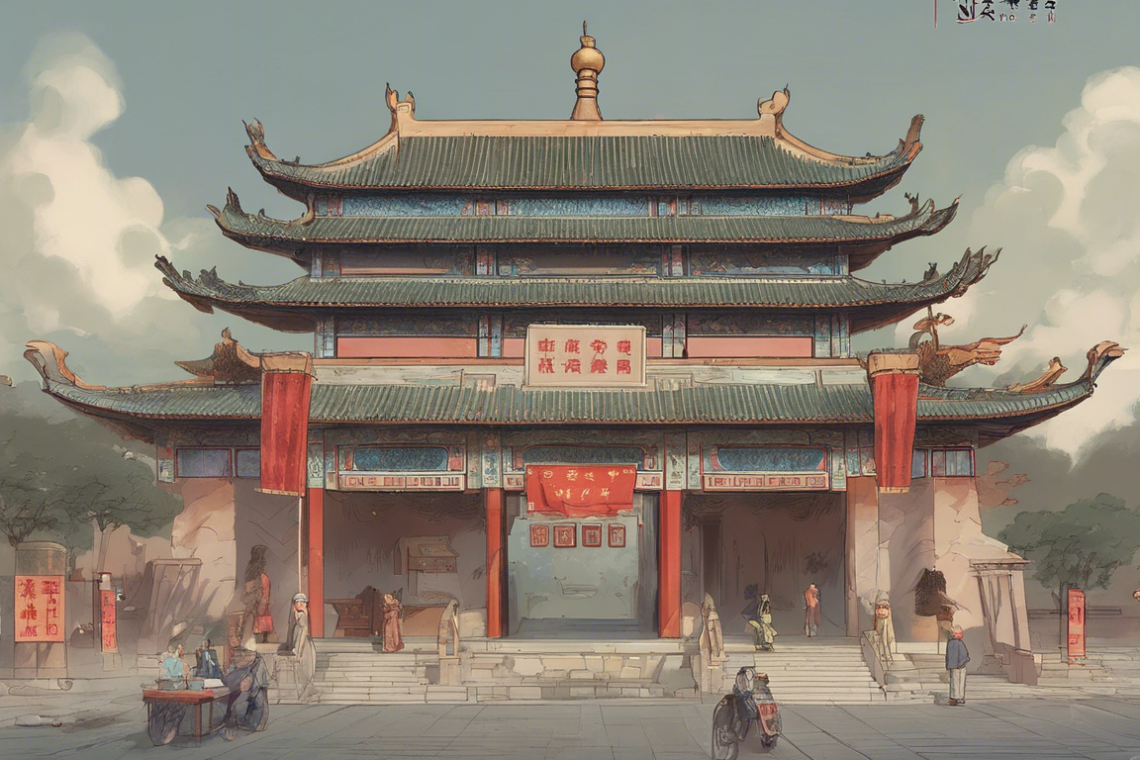Chuckle-Worthy Chinese Names: A Collection of Hilarious Monikers
Introduction
In a world filled with diverse cultures and languages, it’s no surprise that some names can sound amusing or humorous when translated into English. Chinese names, with their unique characters and phonetics, often lend themselves to some chuckle-worthy moments for those unfamiliar with the language. From literal translations to unintentional wordplay, the world of Chinese names is a treasure trove of humor waiting to be discovered. In this article, we will explore a collection of hilarious Chinese names that are sure to bring a smile to your face.
The Cultural Context of Chinese Names
Before delving into the humorous side of Chinese names, it’s essential to understand the cultural significance behind them. In Chinese culture, names are chosen with great care and are believed to influence a person’s destiny. Chinese names often carry deep meanings, reflecting values such as virtues, aspirations, and blessings. The phonetic sounds of the characters are also essential, as certain sounds are associated with positive attributes or auspicious qualities. Given this cultural backdrop, the humor found in some Chinese names arises not from mockery but from the quirks of linguistic translation and the playfulness of language itself.
Literal Translations Gone Wrong
One common source of humor in Chinese names comes from literal translations that, when rendered in English, result in unintended meanings or odd combinations of words. The beauty of the Chinese language lies in its pictorial characters, each carrying a specific meaning. However, when these characters are directly translated into English, the results can be quite comical. Here are a few examples of literal translations gone wrong:
- Wang Liqin: In Chinese, this name means “Forest of Kings,” reflecting nobility and grandeur. However, when translated literally into English, it becomes “王励勤,” which can be read as “King Encourages Diligence.” The juxtaposition of regality and motivation in this name is both amusing and inspiring.
- Zhang Fei: A famous historical figure known for his bravery and loyalty, Zhang Fei’s name 张飞 translates to “Flying Zhang” in English. While the Chinese name evokes images of a fierce warrior, the English translation gives a more whimsical impression of someone taking flight.
- Li Bao: This name 李保 means “Preserve Pear” in Chinese, a somewhat puzzling combination of fruits and conservation. When translated literally, the English equivalent becomes “Li Protects,” losing the fruity charm of the original.
Wordplay and Puns
Another source of amusement in Chinese names is the clever use of wordplay and puns, which are deeply ingrained in Chinese culture. Chinese language is rich in homophones and double entendres, allowing for creative expressions and hidden meanings within names. While some wordplay may be intentional, others result from coincidental phonetic similarities that lead to humorous associations. Here are a few examples of punny Chinese names:
- Hu Die: The Chinese name 蝴蝶 means “butterfly,” a delicate and graceful insect. However, when pronounced in English, it sounds nearly identical to “who died,” creating a darkly humorous twist to an otherwise lovely name.
- Jing Ling: The name 晶灵 conveys a sense of clarity and spirituality, meaning “Crystal Spirit.” Yet, when heard in English, it can be interpreted as “jingle bell,” invoking festive holiday cheer rather than mystical allure.
- Wei Shen: A common name combination in Chinese, 魏深 translates to “Deep Wei” or “Profound Wei.” However, English speakers might find amusement in its similarity to the phrase “wee shen,” which sounds like a diminutive deity of mischief.
Cultural References and Iconic Figures
Some Chinese names gain their humor from cultural references or iconic figures that spark recognition and amusement among those familiar with the context. By invoking well-known personalities, fictional characters, or historical events, these names add an extra layer of wit and playfulness to the mix. Here are a few examples of culturally resonant Chinese names:
- Sun Wukong: Known as the Monkey King in the famous Chinese novel “Journey to the West,” 孙悟空 is a legendary figure renowned for his mischief and supernatural abilities. The name itself translates to “Awakened to Emptiness,” a profound reflection on Buddhist philosophy cloaked in the guise of a mischievous simian.
- Wang Ba Lao: A colloquial term in Chinese for someone who constantly boasts about their wealth or status, 王八老 roughly translates to “Old Turtle Wang.” The name carries a humorous connotation of pretentiousness and absurdity, capturing the essence of its cultural significance.
- Yang Guifei: A renowned beauty from Chinese history, 杨贵妃 is a symbol of grace and allure. Yet, when pronounced in English, it sounds similar to “young, gwee-fay,” conjuring images of a trendy yet sophisticated persona that transcends time and culture.
The Intriguing World of Chinese Nicknames
In addition to formal names, Chinese culture also values the use of nicknames as expressions of familiarity, affection, or playful teasing. Nicknames in Chinese can be whimsical, endearing, or downright hilarious, offering a glimpse into the personal relationships and dynamics between individuals. While some nicknames are straightforward abbreviations or adaptations of given names, others are creative inventions that capture a person’s personality or quirks. Here are a few examples of entertaining Chinese nicknames:
- Xiao Pang: A common nickname in Chinese, 小胖 means “Little Fatty” and is often used to affectionately refer to someone with a round or chubby appearance. Despite its straightforwardness, the nickname carries a sense of warmth and familiarity, emphasizing closeness and acceptance.
- A Dou: This playful nickname 阿斗 is derived from the historical figure Liu Bei’s son, Liu Shan, who was known for his timid and indecisive nature. The name A Dou has since become a colloquial term for someone who lacks assertiveness or is easily swayed, adding a touch of humor to interpersonal interactions.
- Da Huang: Meaning “Big Yellow” in Chinese, 大黄 is a whimsical nickname that may refer to someone with a bright and cheerful personality or simply evoke a sense of sunny optimism. The playfulness of the name reflects a lighthearted approach to relationships and communication.
Embracing Diversity and Understanding
While the humor found in Chinese names may stem from linguistic quirks or cultural nuances, it’s essential to approach them with sensitivity and respect for different ways of expression. In a globalized world where cultures intersect and intertwine, appreciating the diversity of names and their inherent complexities enriches our understanding of human communication and identity. By recognizing the humorous aspects of Chinese names alongside their profound meanings and cultural significance, we celebrate the richness of language and the joy of shared laughter.
Conclusion
In conclusion, the world of Chinese names offers a fascinating blend of humor, creativity, and cultural depth that transcends linguistic boundaries. From literal translations to clever wordplay, and iconic references to endearing nicknames, Chinese names reflect a tapestry of traditions and values woven into every character. By exploring the hilarious side of Chinese names, we not only revel in the delight of linguistic play but also gain a deeper appreciation for the intricacies of cross-cultural communication. So, the next time you encounter a Chuckl-Worthy Chinese Name, remember to smile, for laughter bridges both languages and hearts.







